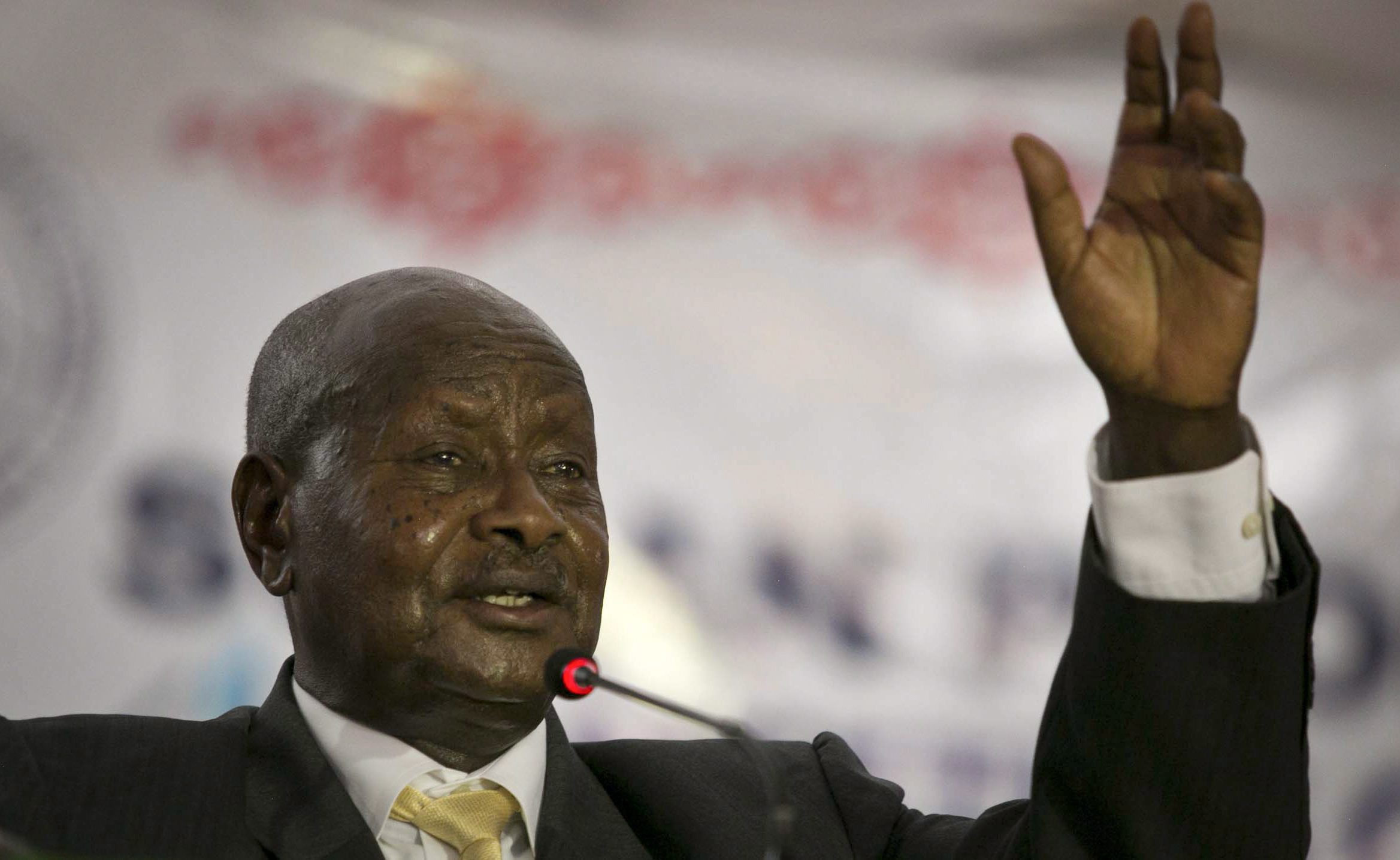When Prime Minister Justin Trudeau sat down with Ugandan President Yoweri Museveni last year, they covered a lot of ground. But not LGBT rights.
During their 20-minute, one-on-one at the United Nations, Trudeau didn’t raise the Ugandan government’s ongoing persecution of LGBT people, according to a report in the National Post.
Ugandan LGBT activists think that was a mistake.
“This issue should be raised in every meeting,” says Dennis Mawejje Wamala, director of programs at Icebreakers Uganda, a care and support organization for LGBT people in Uganda.
“Every meeting needs to remind the politicians that the world is watching and the world needs to know that you are committing crimes against humanity.”
Uganda became a target of international condemnation after legislators introduced a bill that would introduce the death penalty for “aggravated homosexuality” in 2009. A modified version of the “kill the gays” bill was eventually signed into law by Museveni in 2014, but was quickly nullified by the country’s constitutional court.
Trudeau’s approach stands in stark contrast with that taken by the previous Conservative government’s foreign minister John Baird, who publicly battled with the Ugandan government over the issue.
Despite the nullification of the bill, homosexuality is still illegal in Uganda and is punishable by life imprisonment. Vigilante violence and police harassment against LGBT people remain common.
But since 2014, some parts of the international community have stopped paying as much attention to LGBT issues in Uganda, says Pepe Julian Onziema, the program director of Sexual Minorities Uganda.
“What they don’t get is that the effects of that law still live with us,” he says. “Some donors are no longer funding LGBT workers there because now it didn’t seem to be the most risky country for LGBT, which is a false narrative.”
State-sponsored homophobia remains popular amongst many segments of the Ugandan public and political leaders continue to return to the anti-homosexuality legislation.
The latest attempt came in April, when Ugandan lawmakers re-introduced a version of the anti-homosexuality bill after Rebecca Kadaga, the speaker of the Ugandan legislature, denounced western countries for promoting LGBT rights at the Inter-Parliamentary Union (IPU). It was a repeat performance for the powerful politician, who publicly clashed with Baird on the same issue at an IPU summit in Quebec City in 2012.
Activists believe that international pressure on Ugandan politicians, especially the president, is necessary to outweigh calls for increased legal crackdowns on homosexuality.
While Museveni is no progressive on LGBT issues — not only did he sign the anti-homosexuality bill, but he has called homosexuality “abnormal” and believes that LGBT people “lure normal youths into these disgusting behaviours” — he does value his international reputation.
“The president would not want to discuss anything to do with homosexuality, because he doesn’t want to miss the votes from Ugandans and he also doesn’t want the pressure from the international world,” says Joanita Warry Ssenfuka, the executive director of Freedom and Roam Uganda, an LGBT rights organization.
Pressure from international leaders, whether public or private, is necessary to counterbalance the political and religious forces within Uganda that wish to see a renewed legal crackdown on LGBT people, activists say.
“What we really wish to happen is countries that have a partnership with Uganda to stand their ground on human rights. Period. Without any selections,” says Onziema.
Even though the extreme anti-homosexuality law is no longer on the books, LGBT Ugandans remain in peril.
“Nullifying the law does not mean that Uganda is safe,” Ssenfuka says.

 Why you can trust Xtra
Why you can trust Xtra


